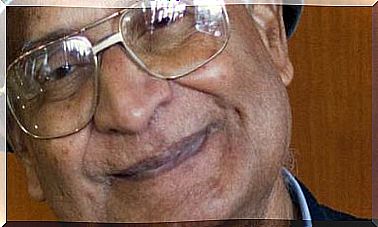Asperger Syndrome: Individual Disorder Or Social Problem?
Children and adults with Asperger syndrome are intellectually brilliant, but they miss the complexities of social relationships.

If you like series like Big Bang Theory or Bones, you will be amused by the occurrences and peculiarities of Sheldon Cooper or Temperance Brennan, two intellectually very bright people, but with enormous problems understanding social relationships. Both, we can take them as two stereotyped examples of Asperger’s Syndrome.
Today I would like to put aside the fun and endearing part of television characters so that we can try to enter the minds of Asperger people and thus be able to understand how they experience their socialization difficulties.
Characteristics of Asperger’s syndrome
One of the great obstacles that Asperger people run into is understanding what others are feeling and thinking. This ability to venture or intuit what goes through the heads of others has been called Theory of Mind.
Most of us, from childhood, through social interaction, we learn to “read” the minds of others to know when they are well or when they need something, when they are sad or happy. However, people with Asperger’s have a hard time putting themselves in someone else’s shoes and grasping what they may be thinking.
Temple Grandin, an activist for the understanding and integration of Asperger syndrome, speaking with the neurologist Oliver Sacks, when he went to interview her to incorporate her story into one of his books, explained in a very graphic way what it meant to live this feeling of not understanding the social world. Grandin commented to him how when he was in a conversation with other people, he felt that a large part of the content of the communication was missing because, despite knowing the meaning of the words they exchanged, issues such as non-verbal language, ironies or The jokes they played were incomprehensible to him.
Temple Grandin summed up this feeling perfectly when she told Sacks that when she socially interacted with other people, she felt like “an anthropologist on Mars. ” By the way, Sacks later recovered this expression for the title of one of his best-known books.
Many Asperger children experience bullying at school as a result of this difficulty in social interaction (and a lack of knowledge and understanding from others). They are the different ones, the ones who speak strangely (in a much more cultured way than the others), relate in strange ways and show peculiarities that end up making them victims of the bullies. For the mere fact of being who they are, of being different, they are the object of jokes, insults and even physical attacks.
Years ago I was working with autistic and Asperger children, and much of our daily work focused on giving them tools to understand the intricacies of social relationships and thus be able to live in society feeling sure of themselves and knowing for themselves without being abused.
Likewise, part of our work consisted of going to schools and institutes to explain to teachers and other students what Asperger’s syndrome consisted of and thus favor the integration of these children in their school environment.
However, these social difficulties do not have to be a lifelong obstacle for people with Asperger syndrome. Thanks to their great intelligence, they usually have an above-average intelligence, these children (already adults) can be taught to understand social relationships from an intellectual and rational point of view.
In their case, they do not perform intuitive learning like other people, but they can learn to function in social situations and not miss that part of communication that Grandin spoke about. They can learn, for example, to read non-verbal language, to be attentive to the intonation of a sentence to grasp shades of irony and, little by little, to come to understand all the complexity of personal relationships.
Finally, I would like to mention that there is a current that advocates not considering Asperger’s syndrome as a problem, but as a sample of the diversity of the human being. Asperger people are unlucky enough to live in a society that does not understand and discriminate against them, but they are people who can contribute a lot to our environment and also to our progress as a species.
In fact, it is thought that great characters in history were Aspergers. Reading the biographies of Einstein, Newton, Tesla or Darwin, scientists who made great advances in their areas of knowledge, we can find many of the characteristics that define the Asperger. Not surprisingly, Temple Grandin herself named her TED talk “The World Needs All Kinds of Minds.”
Perhaps the problem is not in Asperger people, but in a rigid, monochromatic society that does not understand or admit what is different. Perhaps, the only thing that these people need, to be able to live in society without feeling rejection, are understanding and respectful friends like those of Sheldom Cooper or Bones in the television series.









